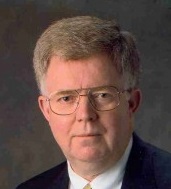By Bob Allen
After losing a copyright infringement lawsuit to prevent the posting of videos alleging contradictions in different versions of his once famous “Jihad to Jesus” testimony, a Georgia Baptist college president now must pay more than $34,000 in attorney fees, a federal judge ruled July 1.
 U.S. District Judge Norman Moon in Lynchburg, Va., said he believes Brewton-Parker College President Ergun Caner’s lawsuit filed against two bloggers in 2013 was intended to silence critics and not a legitimate copyright claim.
U.S. District Judge Norman Moon in Lynchburg, Va., said he believes Brewton-Parker College President Ergun Caner’s lawsuit filed against two bloggers in 2013 was intended to silence critics and not a legitimate copyright claim.
Caner filed a lawsuit in Texas in June 2013 followed by an amended complaint four months later seeking a permanent injunction against purported copyright infringement, along with costs including compensation for attorney fees. The case was divided into separate actions in Texas and Virginia, and both were dismissed as “fair use” under the U.S. Copyright Law.
While not required to award attorney fees to defendant Jonathan Autry, Judge Moon said he chose to do so after concluding that Caner “acted with improper motive” in bringing the lawsuit and offered “frivolous arguments” to unnecessarily extend the litigation’s length and costs.
“A fee award is needed to encourage defendants like Autry to protect their rights against those who, like Caner, seek to suppress criticism,” the judge said. “Equally, those like Caner should be deterred from exploiting the court system for their own purposes.”
Peter Lumpkins, vice president of communications at Georgia Baptist Convention-affiliated Brewton-Parker College, said Caner has no comment at this time.
Judge Moon said Autry made good-faith efforts to mediate the dispute by removing uncontested videos of Caner and agreeing not to post videos of him in the future, and to sign a non-disparagement agreement. Autry balked, however, when Caner asked him to force his wife and three children — ages 4, 5 and 7 — to sign similar agreements, and he refused to turn over private correspondence without a subpoena.
The judge said Caner’s response to Autry’s refusal was that he might “follow this copyright suit with defamation lawsuits and with the likely outcome of bankrupting those involved.”
Moon, who was appointed to the bench in 1997 by President Clinton, said such conduct “strongly suggests that Plaintiff cared more about protecting himself from criticism and harassing his critics than protecting his alleged copyrights.”
If Caner’s motives might not be clear solely from his settlement conduct, the judge said, his behavior during legal proceedings cleared up any doubt.
“This case contains too many instances of Plaintiff’s dilatory conduct and objectively unreasonable litigation positions to credit his recent assertions of good faith,” the judge said.
At one point, the judge said Caner portrayed Autry as a disgruntled former employee seeking revenge after losing his job, bent on harming his former boss financially by engaging in “cyber-terrorism.”
Later, in his motion asking for fees, Caner claimed he “had no prior knowledge or relationship with Mr. Autry and has no desire to, in bad faith, vex and harass him.”
“When it suited him to describe Defendant as a vindictive, disgruntled former employee, he did so,” the judge observed. “Now, a narrative where Plaintiff does not know Defendant is offered to bolster Plaintiff’s purported good faith.”
Moon called it a “boldfaced contradiction” that “stands as one example of an objectively unreasonable position taken by Plaintiff that supports an award of attorney’s fees.”
Caner argued that Autry wasn’t entitled to recover attorney fees because his lawyer is his brother and offered to defend him pro bono.
Judge Moon said Caner offered no proof of the claim, but either way legal precedent is well established that lawyers who represent their clients without charge can still be entitled to reasonable attorney fees.
He found Harrisburg, Pa., attorney Joshua Autry’s claim of nearly 150 hours billed at $250 per hour reasonable and warranted, in part to discourage Caner “from seeking to use the Copyright Act to stifle criticism in the future.”
Previous stories:
Ex-Muslim preacher loses copyright claim
